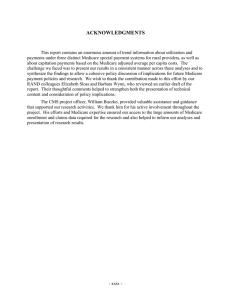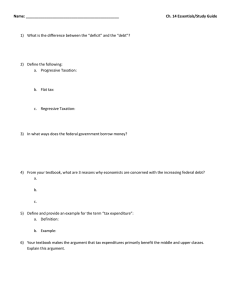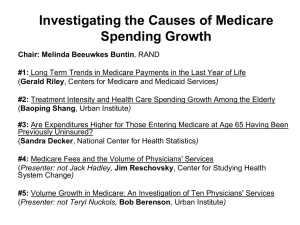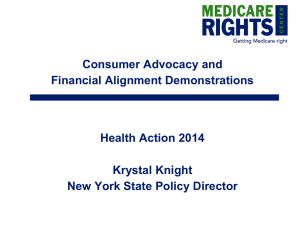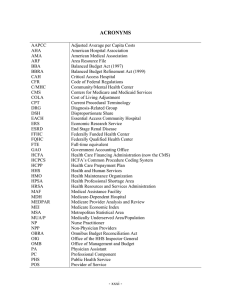ACCOUNTING FOR SOCIAL RISK FACTORS IN MEDICARE
advertisement
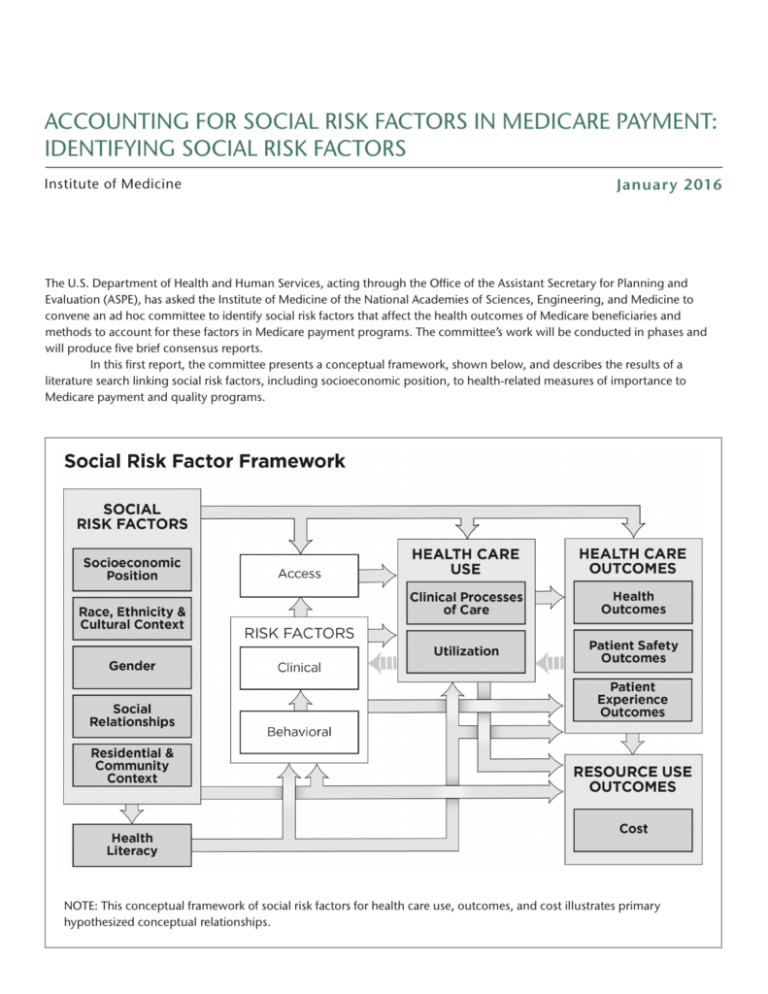
ACCOUNTING FOR SOCIAL RISK FACTORS IN MEDICARE PAYMENT: IDENTIFYING SOCIAL RISK FACTORS Institute of Medicine Januar y 2016 The U.S. Department of Health and Human Services, acting through the Office of the Assistant Secretary for Planning and Evaluation (ASPE), has asked the Institute of Medicine of the National Academies of Sciences, Engineering, and Medicine to convene an ad hoc committee to identify social risk factors that affect the health outcomes of Medicare beneficiaries and methods to account for these factors in Medicare payment programs. The committee’s work will be conducted in phases and will produce five brief consensus reports. In this first report, the committee presents a conceptual framework, shown below, and describes the results of a literature search linking social risk factors, including socioeconomic position, to health-related measures of importance to Medicare payment and quality programs. NOTE: This conceptual framework of social risk factors for health care use, outcomes, and cost illustrates primary hypothesized conceptual relationships. Committee on Accounting for Socioeconomic Status in Medicare Payment Program Donald M. Steinwachs (Chair) Johns Hopkins Bloomberg School of Public Health John Z. Ayanian University of Michigan Charles Baumgart xG Health Solutions Melinda Buntin Vanderbilt University School of Medicine Ana V. Diez Roux Drexel University Dornsife School of Public Health Marc N. Elliott RAND Corporation José J. Escarce University of California, Los Angeles Robert Ferrer University of Texas Health Science Center at San Antonio Darrell J. Gaskin Johns Hopkins Bloomberg School of Public Health Mark D. Hayward University of Texas at Austin James S. Jackson University of Michigan Daniel Polsky University of Pennsylvania Meredith Rosenthal Harvard T.H. Chan School of Public Health Anthony Shih The New York Academy of Medicine In subsequent reports, the committee will specify criteria that could be used in determining which social factors should be accounted for in Medicare quality measurement and payment programs; identify methods that could be used in the application of these social factors to quality measurement and/or payment methodologies; and recommend existing or new sources of data and/ or strategies for data collection. ASPE has also asked the committee to produce a brief report identifying best practices of high-performing hospitals, health plans, and other providers that serve disproportionately higher shares of socioeconomically disadvantaged populations and compare those best practices to practices of low-performing providers serving similar patient populations. The final report will provide the committee with the opportunity to synthesize and interpret issues from the previous reports and will include comprehensive project findings, conclusions, and recommendations based on the four previous reports.♦♦♦ IOM Staff Kathleen Stratton Study Director Leslie Y. Kwan Associate Program Officer Emily Vollbrecht Senior Program Assistant Doris Romero Financial Associate Hope Hare Administrative Assistant Rose Marie Martinez Senior Board Director, Board on Population Health and Public Health Practice Sharyl Nass Board Director, Board on Health Care Services Rebecca Morgan Senior Research Librarian, National Academies of Sciences, Engineering, and Medicine To download the full report, visit nas.edu/MedicareSocialRiskFactors

